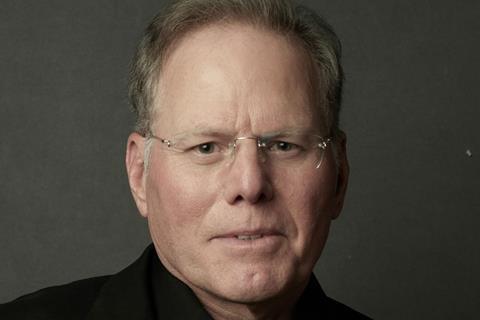
Warner Bros Discovery (WBD) CEO David Zaslav touted an “attack plan” light on detail for the year ahead as the company missed revenue forecasts in its Q4 earnings – however in one upbeat note the streaming business swung to a $103m profit in 2023.
Zaslav and his lieutenants will take heart from that at a time when Wall Street has shifted its focus from subscriber count to profitability. Screen understands WBD is the first media behemoth to turn a profit in direct to consumer operations for a full year (its operation includes pay-TV service HBO), although the result was tempered somewhat by a $55m loss for the segment in the fourth quarter.
WBD cut fourth quarter losses from $2.1bn to $400m year-on-year as revenues dropped 7% to $10.3bn against forecasts of $10.4bn. Free cash flow increased by 33% to $3.3bn, due in part to the strike-induced production halt, as the company reported $1.2bn in debt repayment. WBD generated $6.2bn in free cash flow in 2023 and paid down $5.4bn in debt.
The company carries a debt load of around $45bn and analysts are watching where Zaslav’s cost-cutting and debt-reduction leaves WBD and its assets in the M&A market. It has been linked to a merger with Paramount Global and NBCUniversal.
Total adjusted EBITDA gauging core profitability fell 5% from the year-ago number to $2.5bn. Stock dropped around 12% in early morning trading as Wall Street digested the earnings report and by early afternoon was bobbing around the $8.70 mark.
Global subscribers reached 97.7m by the end of the quarter ending December 31 from 95.9m one year ago, propped up with 1.3m members from the acquisition of Turkish platform BluTV.
Streaming revenue gained 3% over the quarter to reach $2.53bn, while the company is making more from each member as ARPU (average revenue per user) increased to 7.94 from 7.88 in the fourth quarter of 2022.
2023 overall saw streaming revenue reach $10.2bn after a 5% gain, due in part to price hikes and fees from licensing content to other platforms.
Zaslav offered little by way of explanation of the “attack plan”, noting that the Max advertising tier available in the US will roll out into 40 international markets by the end of the year.
Media companies want streaming advertising revenue to fill the hole left by the declining linear market and the general sentiment among analysts is this will be an uphill climb. Advertising revenues dropped 14% in the networks segment.
The studios segment reported lacklustre results as revenue fell 17% to $3.2bn for the quarter, although theatrical revenue climbed due to the heavier slate featuring Wonka, Aquaman And The Lost Kingdom, and The Color Purple. Adjusted EBITDA dropped 29% to $543m.
Zaslav addressed publicly for the first time the sports streaming joint venture announced recently with Disney and Fox which will bundle ESPN, Fox Sports and TNT and TBS among others.
The executive did not provide details on the name of the bundle or price points, saying the target was to lure some “60million-plus” sports fans who are not currently in the pay-TV ecosystem.
Zaslav also noted the first season of the Harry Potter TV adaptation based on JK Rowling’s books was expected to debut on Max in 2026, adding that he, HBO’s Casey Bloys and Warner Bros. Television’s Channing Dungey met Rowling in London several weeks ago.

























No comments yet